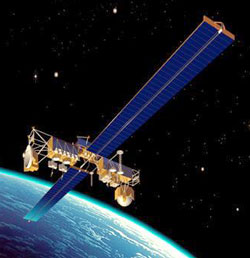 |
Thursday, January 17, 2008
National Science Board Releases Science and Engineering Indicators 2008
Members of the National Science Board today delivered to the President and the Congress Science and Engineering Indicators 2008 (SEI'08), the Board's biennial report on the state of science and engineering research and education in the United States.
Called the "gold standard," it is the most comprehensive source of information on research and development conducted by universities, industry, the federal government and the international science and engineering enterprise.
Today was the earliest release date for any issue of the Science and Engineering Indicators (SEI) series.
The Board also introduced its new publication, Digest of Key Science and Engineering Indicators 2008, another policy neutral document, containing a selected set of indicators electronically linked with detailed data tables and discussions in the main volumes of SEI.
In addition to SEI'08, the Board, concerned that the data revealed disturbing trends with serious policy implications, published a companion piece, Research and Development: Essential Foundation for U.S. Competitiveness in a Global Economy. In this policy statement and in presentations in the U.S. House of Representatives, National Science Board Chairman Steven Beering, Subcommittee Chairman on SEI'08 Louis Lanzerotti and SEI'08 Subcommittee Member Arthur Reilly stressed the need for increased government and industry sharing of funding for basic research.
"These indicators come at an important time," said Chairman Beering. "The confluence of a range of indicators raises key questions about future U.S. high-technology industry's competitiveness in international markets and implications for highly skilled jobs at home."
The Board made three major recommendations:
1.) The federal government should take action to enhance the level of funding for, and the transformational nature of, basic research.
2.) Industry, government, the academic sector and professional organizations should take action to encourage greater intellectual interchange or synergy between industry and academia, with industry reserachers encouraged to also participate as authors and reviewers for articles in open, peer-reviewed publications.
3.) New data are critically needed, and this need should be expeditiously addressed by relevant federal agencies to track the implications for the U.S. economy of the globalization of manufacturing and services in high technology industry.
Press Release - The National Science Foundation
The National Science Foundation
Members of the National Science Board today delivered to the President and the Congress Science and Engineering Indicators 2008 (SEI'08), the Board's biennial report on the state of science and engineering research and education in the United States.
Called the "gold standard," it is the most comprehensive source of information on research and development conducted by universities, industry, the federal government and the international science and engineering enterprise.
Today was the earliest release date for any issue of the Science and Engineering Indicators (SEI) series.
The Board also introduced its new publication, Digest of Key Science and Engineering Indicators 2008, another policy neutral document, containing a selected set of indicators electronically linked with detailed data tables and discussions in the main volumes of SEI.
In addition to SEI'08, the Board, concerned that the data revealed disturbing trends with serious policy implications, published a companion piece, Research and Development: Essential Foundation for U.S. Competitiveness in a Global Economy. In this policy statement and in presentations in the U.S. House of Representatives, National Science Board Chairman Steven Beering, Subcommittee Chairman on SEI'08 Louis Lanzerotti and SEI'08 Subcommittee Member Arthur Reilly stressed the need for increased government and industry sharing of funding for basic research.
"These indicators come at an important time," said Chairman Beering. "The confluence of a range of indicators raises key questions about future U.S. high-technology industry's competitiveness in international markets and implications for highly skilled jobs at home."
The Board made three major recommendations:
1.) The federal government should take action to enhance the level of funding for, and the transformational nature of, basic research.
2.) Industry, government, the academic sector and professional organizations should take action to encourage greater intellectual interchange or synergy between industry and academia, with industry reserachers encouraged to also participate as authors and reviewers for articles in open, peer-reviewed publications.
3.) New data are critically needed, and this need should be expeditiously addressed by relevant federal agencies to track the implications for the U.S. economy of the globalization of manufacturing and services in high technology industry.
Press Release - The National Science Foundation
The National Science Foundation

